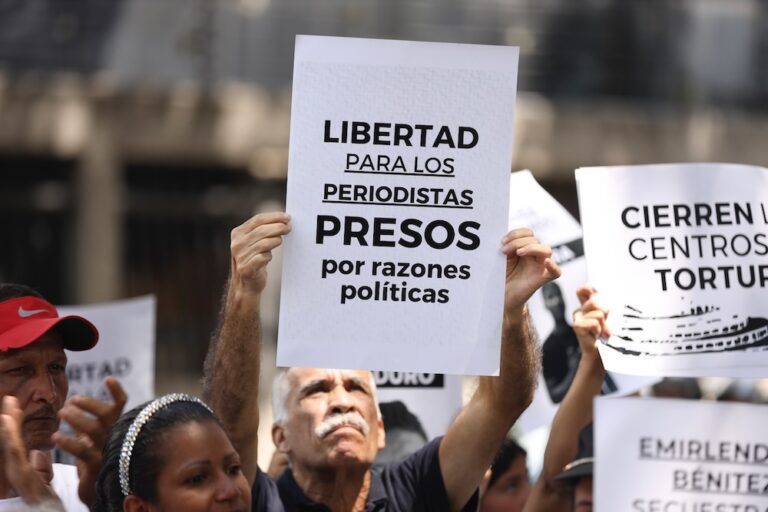(HRinfo/IFEX) – The following is a 5 March 2006 HRinfo statement: HRinfo announces its concern for and condemnation of the attack against freedom of expression committed by Arab governments blocking websites that call for freedom of thought and expression. For the past week, the Egyptian website http://www.masreyat.org has been blocked. In addition, the famous website […]
(HRinfo/IFEX) – The following is a 5 March 2006 HRinfo statement:
HRinfo announces its concern for and condemnation of the attack against freedom of expression committed by Arab governments blocking websites that call for freedom of thought and expression.
For the past week, the Egyptian website http://www.masreyat.org has been blocked. In addition, the famous website “Modern Discussion” (http://www.rezgar.com), as well as two other sites (“Elaph” and “Dar Alnadwa”), have been facing the threat of a lawsuit by a Saudi businessman who claims that they feature unacceptable writing about Muslims. These sites are actually already blocked in several countries. “Modern Discussion” is the most blocked website, as it is blocked in Saudi Arabia, the United Arab Emirates and Tunisia. It hosts the writings of many Arab writers and journalists who have found in it a space for freedom of expression, especially when it comes to defending secularism and women’s rights, campaigning against capital punishment, and defending other journalists and writers.
“Most Arab governments largely oppress freedom of press and expression,” HRinfo Program Coordinator, Sally Sami, said. “Now that the Internet has provided a venue for liberties, Arab governments are seeking to restrict its space by blocking websites and terrorising Internet writers and users,” she added.
The Tunisian government, infamous for blocking many human rights and political websites, has acted with the most speed in its Internet censorship, blocking http://www.yezzi.org only 18 hours after it was launched.
In Egypt, security authorities have recently been blocking websites calling for reform, such as the “Save Egypt Front” and “Masreyat” sites, in addition to continuously blocking the sites of the “Al-Shaab” newspaper and the Al-Amal (labour) party.
The Saudi government, on the other hand, is not satisfied with its daily blocking of nearly 200 websites. Religious scholars and businessmen affiliated to the Saudi government are launching campaigns against the freedom of Internet use and of information exchange. Religious scholars have issued a “fatwa” prohibiting women from using the Internet unless in the presence of a “mahram” (a close relative they are prohibited to marry). The announced fatwa was followed by a call from Saudi businessmen to sue websites that call for freedom of thought and secularism.
“Amongst the Arab governments violating freedom of expression and exchange of information, we find that the most aggressive are those of Tunisia, Saudi Arabia, and Egypt,” Sami said. “Such behaviour breaches the right of citizens to acquire information and news and deprives them of a variety of sources of information,” she added.


